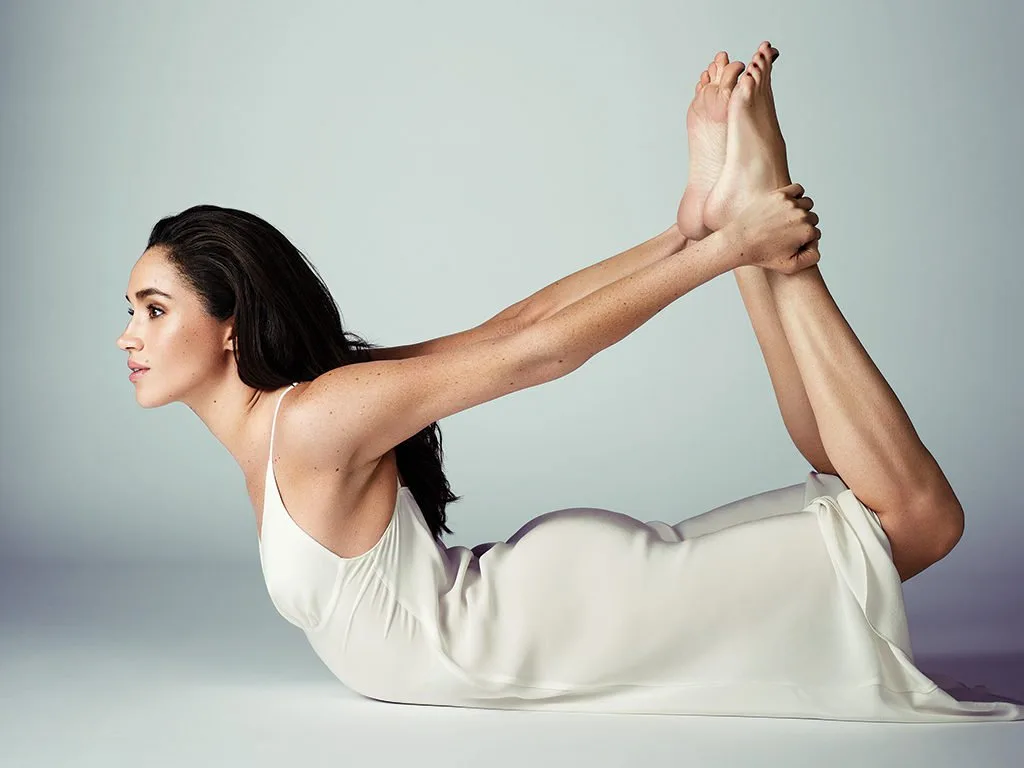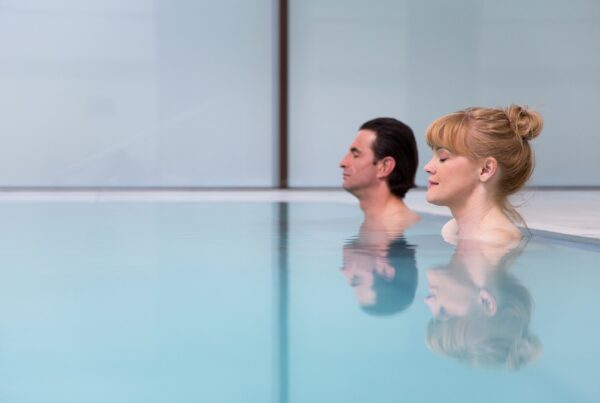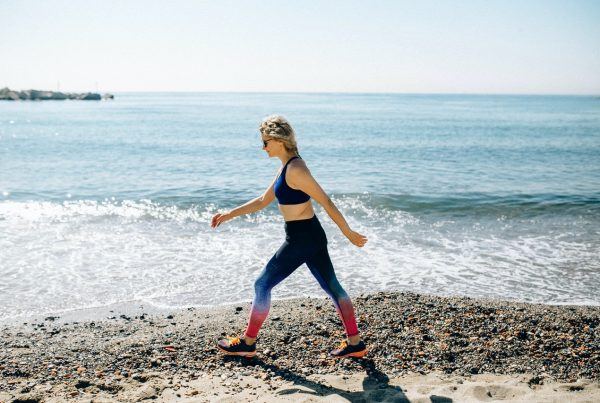Yoga has come a long way. You could say that once upon a time it was considered a rather alternative activity. Largely the domain of yogis’, hippies and free spirits. Thankfully, today the world has come to realize that yoga is not just great for your emotional and spiritual well-being. Indeed, it is a fantastic go to, anti-aging exercise regime.
Yoga promotes physical health and anti-aging in many ways. Here are some physical benefits of yoga that have a growing body of research behind them. In addition to the conditions listed below, preliminary research also shows that yoga may help with migraines, osteoporosis, balance and mobility issues, multiple sclerosis, inflammatory bowel disease, fibromyalgia, and ADHD.
Back pain relief
Let’s start with back pain. Back pain is one of the most common health problems in the United States. According to Harvard Health, four out of five Americans will suffer from it at some point.
The great news is that yoga appears to be helping. A 2013 meta-analysis of 10 randomized controlled trials found “strong evidence for short-term effectiveness and moderate evidence for long-term effectiveness of yoga for chronic low-back pain.” In fact, the American Society of Pain urges physicians to consider recommending yoga to patients with long-term pain in the lower back.
Anti-aging means you have to get active
No slouching around, please. If you are taking your health span seriously then you need to get your butt into gear. We know it is tempting to stay in bed or on a couch when your back hurts. However, doctors no longer recommend extended bed rest. Although lying in bed does minimize stress on the lumbar spine, it also causes muscles to lose conditioning, among other problems. In general, the sooner you can get up and get moving, the faster you will recover. Yoga helps alleviate back pain by increasing flexibility and muscle strength.
Just 90 minutes a week
In one study, published in the journal Spine, people with back pain who did two 90-minute sessions of yoga a week for 24 weeks experienced a 56% reduction in pain. Now that is something to talk about! They also had less disability and depression than people with back pain who received standard care, such as pain medication. The results also suggested a trend towards using less pain medication in those who did yoga. When the researchers followed up with the participants six months after the study, 68% of the people in the yoga group were still practicing yoga an average of three days a week for an average of 33 minutes per session. That tells you it is working.
Less arthritis pain
Exercise has been shown to help alleviate the pain and stiffness associated with osteoarthritis. However, the symptoms of osteoarthritis can make it difficult to be active in the first place. Yoga offers a gentle form of exercise that helps improve range of motion and strengthen the muscles around painful joints.
Significant improvement
In a 2014 study of 36 women with knee osteoarthritis, those who did yoga experienced significant improvements in their symptoms compared with women who didn’t do yoga. The yoga group had a 60-minute class one day a week and then practiced at home on several other days, averaging 112 minutes of yoga a week on their own. After eight weeks, they reported a 38% reduction in pain and a 35% reduction in stiffness, while the no-yoga group reported worsening symptoms.
Backed up by science
People with rheumatoid arthritis, an autoimmune disorder, may also benefit from yoga. In a 2015 study, women with rheumatoid arthritis reported improvements in their physical health, walking ability, pain levels, energy, and mood. They also had significantly fewer swollen and tender joints after doing two hour-long yoga classes a week for eight weeks.
Yoga and cancer
Decades of research show that yoga can reduce the emotional and physical fatigue brought on by cancer treatment. In 2017, scientists reported for the first time that this is also true specifically for men undergoing treatment for prostate cancer. Men who took a yoga class twice a week during prostate cancer radiation treatment reported less fatigue, fewer sexual side effects, and better urinary functioning than men who did not.
Men, yoga, and cancer
The research team enrolled 50 men ages 53 to 85 who were diagnosed with early or advanced non-metastatic prostate cancer. Of them, 22 were assigned to yoga classes and the rest did not participate in yoga. All of the men received scheduled radiation treatments; 29 of them were also on hormonal therapy, and 19 had been treated previously with surgery. Yoga and control groups were evenly balanced with respect to various cancer treatments as well as treatments for side effects.
The type of yoga assessed in the study, called Eischens yoga, focuses on holding and maintaining poses, and is accessible for all body types and experience levels.
What is Eischens Yoga?
Named after its founder, Roger Eischens, this practice focuses on alignment and how to recognize imbalances in the skeleton, in muscle use, in the breath. Eischens Yoga classes are noted for their use of props, basic postures, weight-resistance, and in-class mini-workshops where students work together to look more closely at how their bodies function in specific poses. The sessions lasted 75 minutes each. Before, during, and after the nine-week study, men were asked to rate their fatigue, as well as sexual and urinary symptoms.
Research findings back up yoga exercise
I don’t know about you, but I don’t come across a lot of men in my yoga classes. What a pity! Men just don’t know what they are missing out on. There’s so much proven research around the medical benefits of yoga as a therapeutic, anti-stress, heart boosting and anti-aging exercise. Men in the yoga group reported improving or stabilizing symptom scores over time. Whereas men in the non-yoga group reported worsening symptoms. The authors speculated that yoga improves erectile and urinary function. It does this by strengthening core muscles and improving blood flow.

Stress adds years to your life
Yoga is a great stress relief exercise. And boy do we suffer from stress. Did you know that stress accounts for between 60% and 80% of visits to primary care doctors? Chronic stress has been linked to accelerated biological aging, increased chronic inflammation, and oxidative stress, two processes that cause cellular and genetic damage. Scientists refer to chronic, low-grade
Inflammaging is going to age you
inflammation in the body as “inflammaging.” Inflammaging has been associated with conditions like diabetes, heart disease, stress, depression, and a weakened immune system.
Yes! Yoga will slow down the effects of stress.
Several recent studies suggest that yoga could slow the harmful physical effects of stress and inflammaging. There are many types of biomarkers in the blood that can be used to measure the level of chronic inflammation and stress in the body. Cortisol varies throughout the day based on the circadian rhythm, and a higher baseline level of cortisol is one indicator of high chronic stress. Cortisol becomes less variable throughout the day in people who are chronically stressed, signaling an overactive fight-or-flight or sympathetic nervous system. Another biomarker is brain-derived neurotrophic factor (BDNF), a naturally occurring protein in the body that regulates neuroplasticity and promotes brain development. People who have depression, anxiety, or Alzheimer’s disease have been found to have lower levels of BDNF.
Studying yoga’s effects on stress
In an exploratory study published in Oxidative Medicine and Cellular Longevity, researchers found that 12 weeks of yoga slowed cellular aging. The program consisted of 90 minutes of yoga that includes physical posture, breathing, and meditation five days a week over 12 weeks. Researchers found indications of lower levels of inflammation and significantly decreased levels of cortisol. The study also found higher levels of BDNF after the yoga program, suggesting that yoga could have potential protective effects for the brain as well.
The Bottom Line
There are so many studies on the benefits of yoga and aging. We have just touched the tip of the iceberg. We know that yoga improves your heart health, joint health, aids weight loss, beats stress, and reboots the brain. It is a great anti-aging exercise, and easy to do. It’s also a wonderful way to socialize, and best of all, it will put years back on your life!
Want to read more about yoga? Click here and enjoy!



![women [longevity live]](https://longevitylive.com/wp-content/uploads/2020/01/photo-of-women-walking-down-the-street-1116984-100x100.jpg)










